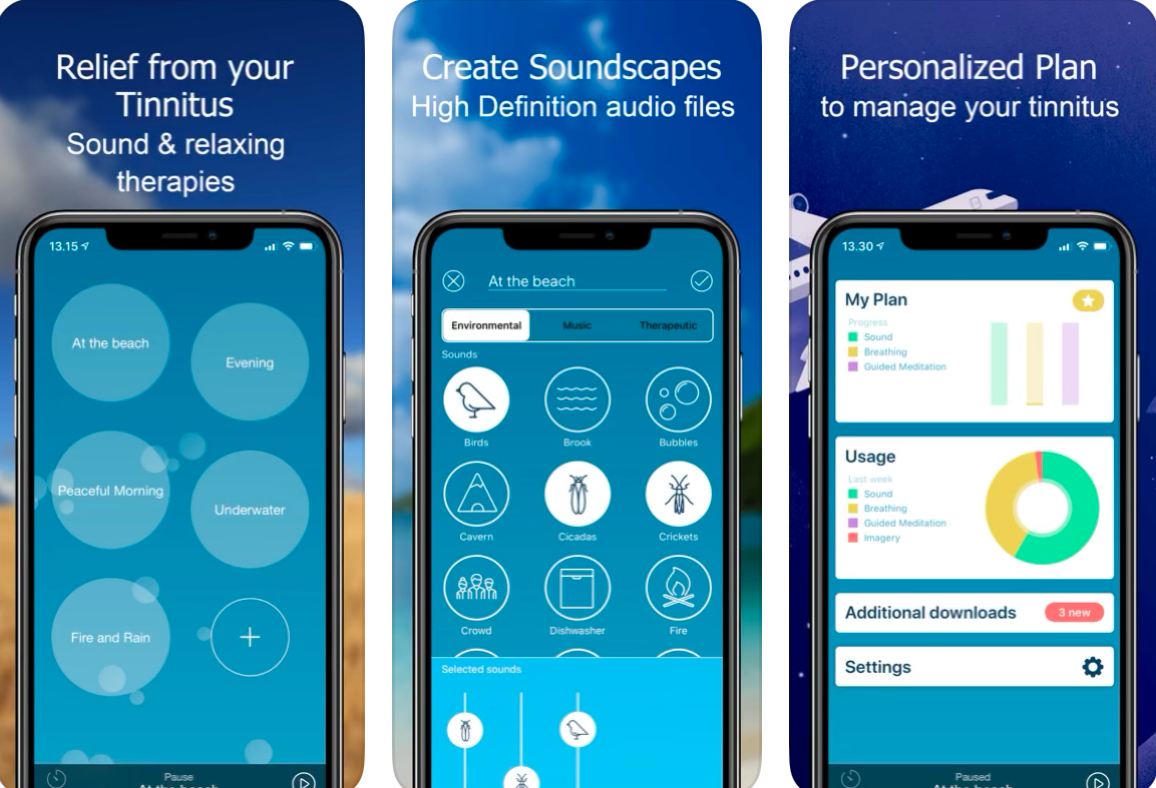Living with tinnitus can be frustrating, confusing, and emotionally exhausting, especially when it feels like the ringing in your ears is taking over your life. But here’s something empowering: understanding why it happens and howto manage it can change everything. In this post, we’ll explore the connection between tinnitus and hearing loss, why the sound feels so distressing, and two science-backed strategies that can help you find real relief without relying on pills or gimmicks.
What Is Tinnitus?
Tinnitus is the perception of sound (like ringing, buzzing, hissing, or whooshing) when no external noise is present. It’s often described as “phantom noise” and affects millions of people worldwide. While tinnitus can have several causes, one of the most common and most misunderstood is hearing loss.
The Connection Between Hearing Loss and Tinnitus
One crucial fact many people don’t realize: tinnitus doesn’t cause hearing loss, hearing loss causes tinnitus.
Here’s how it works: when we lose our ability to hear certain frequencies (especially high pitches), the brain notices the absence of sound input. Imagine looking at an audiogram showing high-frequency hearing loss. Your brain, which once received those high-pitched signals, suddenly doesn’t get them anymore.
The brain doesn’t like this silence. It wants to keep those auditory neurons active, so it creates its own stimulation, resulting in the perception of tinnitus. That’s why tinnitus isn’t something you can “see” in the ear, it’s generated by the brain, not the ear itself.
Even people who are deaf experience tinnitus. Why? Because their brains are still active, and that phantom sound is the brain’s way of trying to stay stimulated.
Why Tinnitus Feels So Distressing
At first glance, the brain’s effort to keep auditory neurons alive sounds like a smart system. But there’s a catch: the brain often interprets this sound as a threat.
We’re conditioned from childhood to associate high-pitched, continuous sounds with danger—think fire alarms, ambulance sirens, or security alerts. So, when the brain hears the ringing of tinnitus, it can trigger the amygdala, the part of the brain responsible for emotional responses. The amygdala says: This sounds like an alarm. We must be in danger.This sends your body into fight-or-flight mode, which heightens anxiety, stress, and emotional discomfort.
This emotional response feeds into a vicious cycle:
- You notice your tinnitus.
- Your brain labels it as a threat.
- You feel anxious and try to resist or block out the sound.
- That resistance makes the sound feel even more intrusive.
- The cycle repeats.
This loop is the reason tinnitus can feel unbearable—even though it’s just a sound.
What Affects Tinnitus Perception?
When working with patients experiencing tinnitus, audiologists often explore several contributing factors that affect how intensely someone perceives their symptoms. These include:
- Stress and Anxiety: Stress hormones make the brain more sensitive to potential “threats,” including tinnitus.
- Fatigue or Poor Sleep: A tired brain goes into fight-or-flight mode more quickly, making you more sensitive to phantom sounds.
- Caffeine: As a stimulant, caffeine increases focus. Unfortunately, this can also lead to hyper-focusing on tinnitus.
Understanding and managing these triggers is a key step in finding relief.
The Key to Relief: Breaking the Cycle Through Habituation
Tinnitus management is all about breaking the fight-or-flight cycle and helping your brain learn that the sound is not dangerous.
This process is known as habituation, a form of retraining the brain to stop reacting emotionally to tinnitus. It doesn’t eliminate the sound entirely, but it does reduce its importance and emotional impact. Over time, your brain pushes it into the background like the hum of a refrigerator or distant traffic.
There are two main strategies that support habituation:
1. Sound Therapy (Free and Easy to Use)
Sound therapy involves using pleasant, relaxing background noise to gently reduce the prominence of your tinnitus. You can use sounds like:
- White noise
- Rain or ocean waves
- Flowing creeks or wind in trees
You’ll find many free apps on both Android and iOS by searching “Tinnitus Masking,” “Tinnitus Relief,” or “Sound Therapy for Tinnitus.” Choose a sound that feels calming and non-intrusive. This part is essential—if the masking sound isn’t pleasant, it won’t help.
How to use sound therapy effectively:
- Play it at a low volume, just below the volume of your tinnitus. Don’t try to drown out the sound completely.
- Use tinnitus masker devices, a sound generator, or the speaker function on your phone, as we want to avoid covering your ear canals—this can amplify the perception of tinnitus. It’s important that you can still hear background sounds to support the habituation process.
- Use it when your tinnitus is most noticeable like during quiet mornings, before bed, or while alone.
- Stick with it consistently. Habituation takes time, weeks, months, or even years, but it’s highly effective when done correctly.
Think of it like Pavlov’s dog: you’re retraining your brain’s response.
2. Hearing Aids (Highly Effective for Hearing Loss-Related Tinnitus)
If your tinnitus is caused by hearing loss, hearing aids are one of the most effective tools you can use.
Custom-programmed hearing aids restore the missing sound input, reducing your brain’s need to “create” phantom sounds. In fact, 99% of patients with hearing loss-related tinnitus report significant relief using properly adjusted hearing aids.
Some additional benefits:
- Many hearing aids include built-in sound generators, so you can play white noise or nature sounds discreetly.
- Hearing aids are designed with open domes, allowing you to stay socially and environmentally aware by letting natural background sounds in—unlike headphones or earbuds, which can feel isolating or even unsafe in public settings. This open design also supports the habituation process by helping your brain adapt to tinnitus while still engaging with your surroundings
- Hearing aids are safe, professional, and effective, especially in work environments where constant earbud use isn’t practical.
While hearing aids aren’t a permanent cure (tinnitus often returns when you take them out), they are an excellent daytime management tool that often improves nighttime symptoms as well.
Final Thoughts: Relief Is Possible
Tinnitus may not have a quick fix, but it is manageable, especially when caused by hearing loss. By understanding the brain’s role in creating and reacting to tinnitus, you can start to shift your relationship with the sound.
Whether through free sound therapy apps or custom hearing aids, you can retrain your brain to stop reacting with anxiety and start treating the sound as background noise.
It takes time. It takes consistency. But habituation is real, proven, and life-changing.



